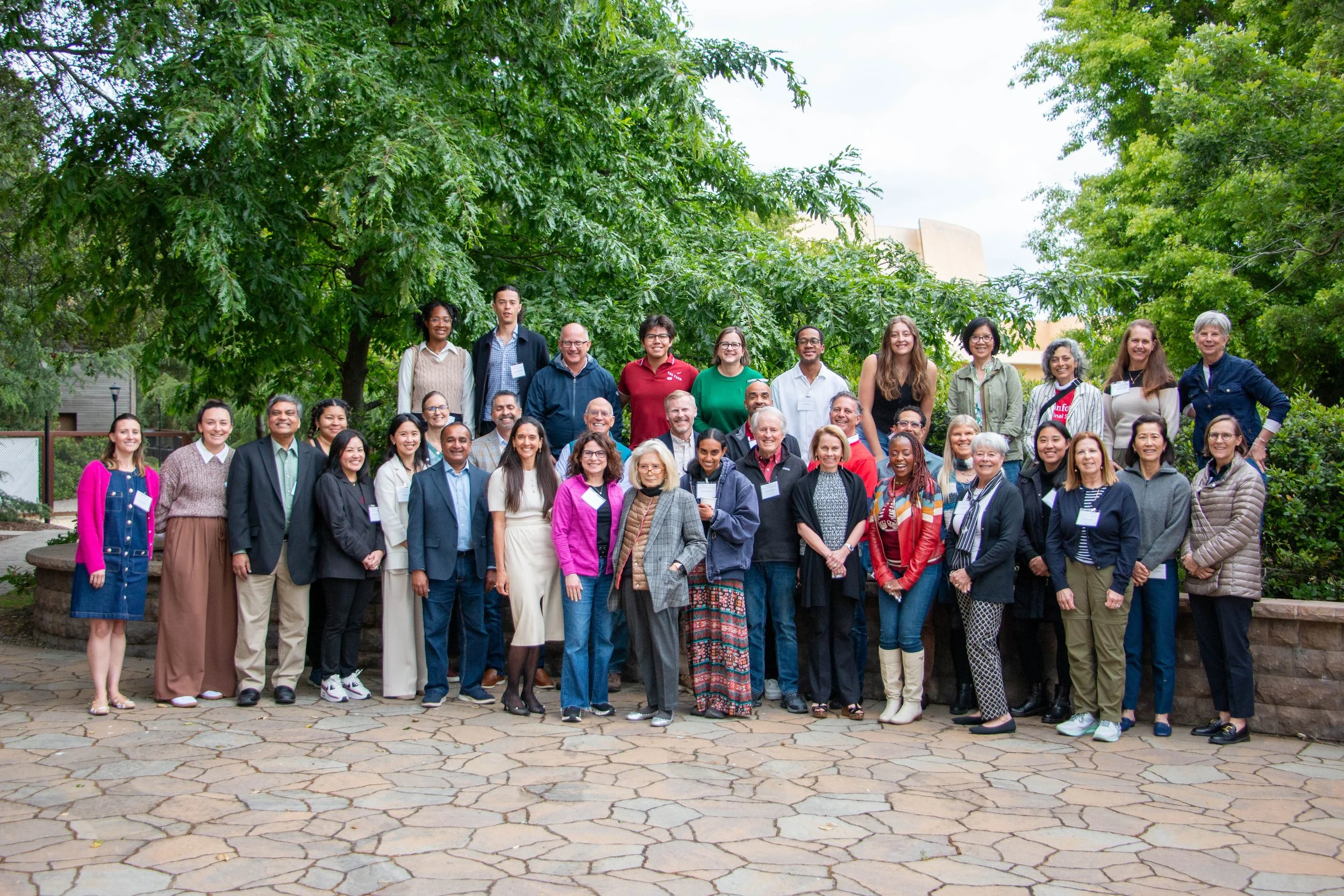Higher Education at a Crossroads: Reflections on Service, Power, and Accountability at Stanford
📷 credit: Alison Upton López (top row fifth from the left)
Alison Upton López, Ktisis Senior Director and National Advisory Board member of Stanford University’s Haas Center for Public Service, recently attended the Spring meeting and first reunion with all past advisory board members. She shares her reflections as higher education institutions remain a focus for this administration's priorities.
I've been on the National Advisory Board since Fall 2022, around the same time I started at Ktisis, coincidentally. The Haas Center for Public Service was my home as a student more than 20 years ago; a place of learning, connection, and where I began my nonprofit career. It provided me with opportunities to lead volunteer groups, participate in community-engaged learning experiences, work in summer internships, and a post-graduate fellowship.
I struggle with Stanford as an elite institution, a sometimes lousy neighbor, and a place that doesn't always make values-aligned decisions. But the Haas Center is a unique space on campus. Students drive more work there, partnering with communities, pushing for justice and real change with learning and support behind them.
This meeting was unique in its purpose as a moment to celebrate 40 years of the Haas Center and multiple decades of the National Advisory Board. Normally, meetings provide a glimpse into programming at the Haas Center and problem-solving around specific issues facing students and staff, from integrating public service across the university to expanding postgraduate fellowships to increasing engagement with graduate students.
This reunion was more of a celebration of the role of the Haas Center on campus and acknowledging the challenges of doing the work within the current sociopolitical context. Every conversation also carried the weight of attacks on higher education, particularly elite universities, as Stanford's new president, Jonathan Levin, voiced concerns about research funding cuts and potential endowment taxes. Students also shared fears around immigration status, censorship, economic inequality and barriers to careers in government right now. While it's difficult to feel overly sympathetic for universities with massive endowments, connecting with students at the meeting left me inspired and, at times, worried.
The Haas Center for Public Service, one of the largest university public service centers, engages thousands of students in community-based research, coursework, and fellowships. These students regularly discuss their challenges navigating upstream at a university deeply embedded in Silicon Valley, where technology-focused careers dominate. They, too, encounter the increasingly difficult struggle to cultivate and nurture values centered on creating a more just world. Engineering students told me they might attend one single hour-long course on ethics, usually without graded work or mandatory attendance. That leaves practically zero space to understand the real-world and ethical impacts of the tech they're building.
At the Spring meeting, I connected with aspiring immigration attorneys, politicians, climate researchers, and yes, even one tech entrepreneur determined to bring social justice principles into that space. They all shared challenges in keeping their vision and values clear while navigating the student community at Stanford and the larger stresses of the world right now.
As is the case with most of our meetings, there were moments when we inevitably turned to discussing higher education's purpose and our goals for educating young people. What responsibility does Stanford have to commit to public service and provide these learning experiences? When endowment taxes hit, how will universities make financial decisions that serve students and stay true to the mission of higher education?
I remain something of a critical friend to my alma mater on these issues. I hold high expectations that such a powerful institution will keep prioritizing opportunities for students to engage in thoughtful community work where they learn to navigate power dynamics, value community voice, and develop an appreciation for civic engagement and activism. We’ve seen attacks on other elite universities already and varying responses. And I worry that endowment hoarding, fear, and politics may drive responses to these attacks, instead of what truly serves students and their potential for positive global impact.
Ultimately, we need courageous decision-making, and alumni (particularly donor alumni) are prime candidates to hold universities accountable to making these courageous decisions that center students. For better or worse, higher education institutions respond to the organized power of alumni and donors. If we unite in coordination with and in service to all students, we'll all come out stronger.


